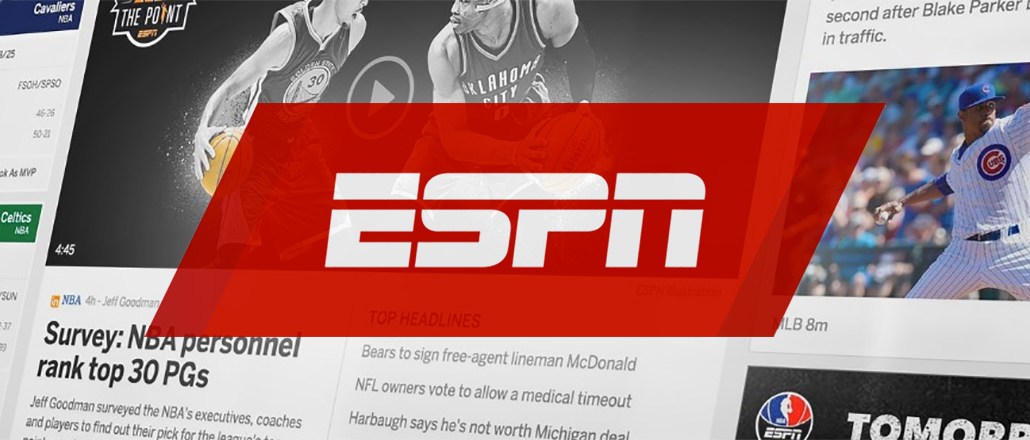Secure your place at the Digiday Publishing Summit in Vail, March 23-25

From paying celebs to post articles to experimenting with live stunts, some publishers are attempting to monetize their Facebook pages by any means possible.
ESPN, which has already pulled back from Instant Articles so it can monetize users on its own platforms, displays a play button in the thumbnail image for some of the static links it posts on Facebook. An analysis of ESPN’s Facebook page shows that from Nov. 6 to 8, ESPN posted 21 video links similar to the one shown below. The first word in the headline of these links was “WATCH” and 16 of these links (76 percent) featured a play button in the thumbnail, even though clicking on the play button doesn’t play the video on Facebook but rather drives users to ESPN’s website, where they are more easily monetized.
“I would advise against putting play buttons on thumbnail images,” said Maia McCann, editor-in-chief of viral-content site LittleThings. “It’s definitely against Facebook’s best practices. You run the risk of getting your hand slapped [by Facebook], and it’s definitely misleading to the user.”
In past years, some publishers who focused on creating viral content used dead play buttons in their thumbnails. But after Facebook changed their algorithm to crack down on the reach of misleading content, most publishers stopped featuring play buttons on static links, McCann said. ESPN and Facebook declined to comment.
“They set the rules within the platform, so it’s best for publishers to follow the rules rather than trying to trick the audience into clicking,” she said. “It’s not a good user experience. When you expect to see someone start talking, it’s frustrating to get redirected to another page that has all sorts of stuff on it that you weren’t expecting.”
Maycie Thornton, director of social media at BuzzFeed, added that “when people click on something, they want to get what they were expecting.” BuzzFeed has never used play buttons on static Facebook links, she said. “We want the user to have the best possible experience. So we focus solely on uploading video natively.”
Another thing that makes ESPN’s video links confusing is that they are interwoven between videos posted directly on Facebook that actually play when users click their play button. However, native videos, like the one below, are less common than linked videos. ESPN has posted only six videos directly to Facebook since Nov. 2.
“There are always questions when you are on Facebook of whether content will exist on or outside of Facebook,” said Jason Kint, CEO of Digital Content Next. Kint cited the larger problem of fake news traveling far and wide on Facebook, adding, “There is still a significant level of distrust and lack of understanding of what you’ll get on the platform.”
This post has been updated to clarify the context of Jason’s Kint’s quote.
More in Media

Urban Outfitters shifts its influencer strategy from reach to participation
Me@UO is Urban Outfitters’ new creator program leverage micro-creators with smaller, engaged communities that are passionate about the brand.

Media Briefing: Without transparency, publishers can’t tell if Google’s Preferred Sources feature benefits them
Six months in, Google’s Preferred Sources promises loyalty-driven visibility, but leaves publishers guessing at the traffic impact.

In Graphic Detail: Publishers chase video podcast growth, but audio still leads
Podcasting may be racing into video, but more listeners still prefer audio — leaving publishers caught between hype and habit.





